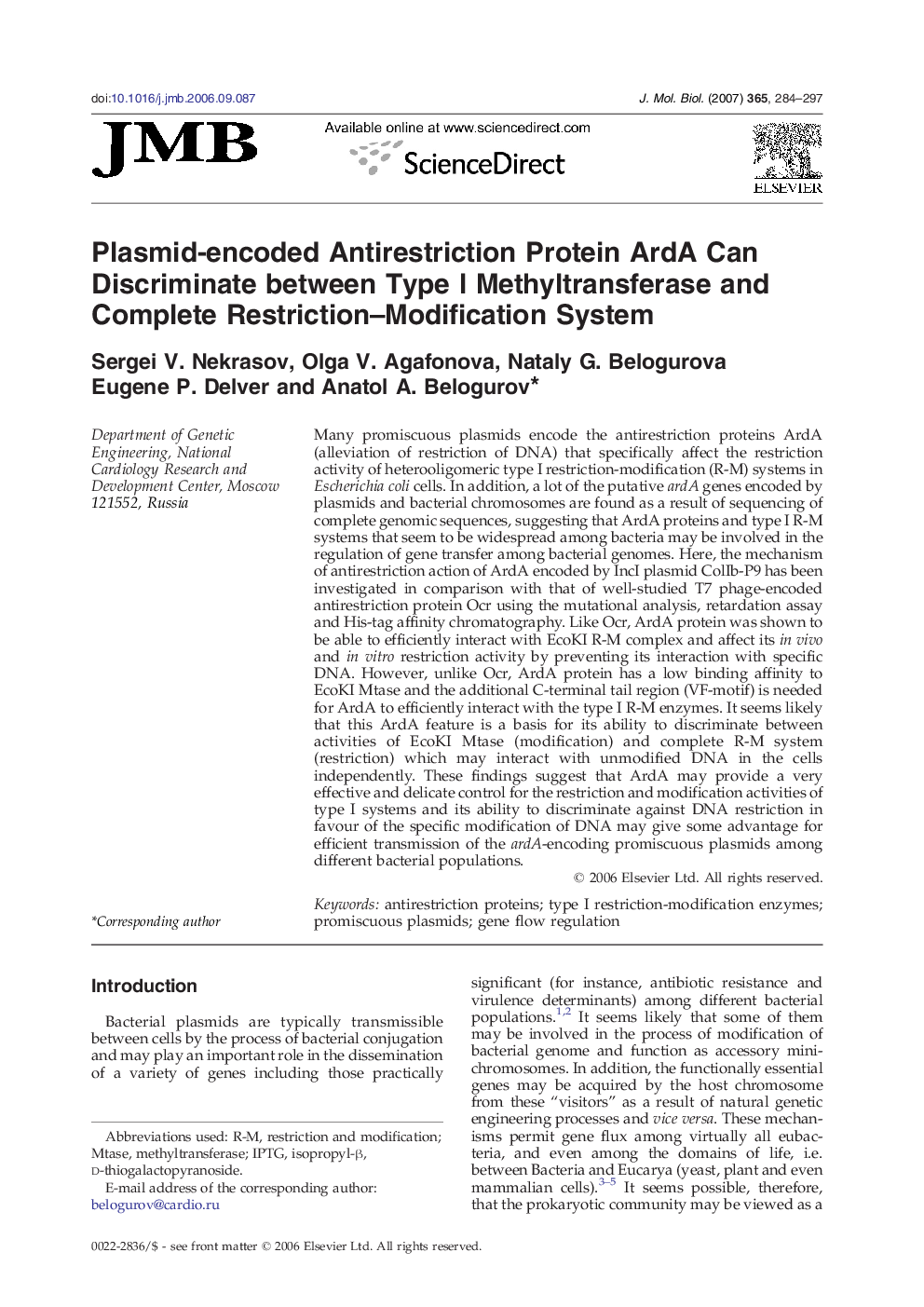| کد مقاله | کد نشریه | سال انتشار | مقاله انگلیسی | نسخه تمام متن |
|---|---|---|---|---|
| 2188553 | 1096176 | 2007 | 14 صفحه PDF | دانلود رایگان |

Many promiscuous plasmids encode the antirestriction proteins ArdA (alleviation of restriction of DNA) that specifically affect the restriction activity of heterooligomeric type I restriction-modification (R-M) systems in Escherichia coli cells. In addition, a lot of the putative ardA genes encoded by plasmids and bacterial chromosomes are found as a result of sequencing of complete genomic sequences, suggesting that ArdA proteins and type I R-M systems that seem to be widespread among bacteria may be involved in the regulation of gene transfer among bacterial genomes. Here, the mechanism of antirestriction action of ArdA encoded by IncI plasmid ColIb-P9 has been investigated in comparison with that of well-studied T7 phage-encoded antirestriction protein Ocr using the mutational analysis, retardation assay and His-tag affinity chromatography. Like Ocr, ArdA protein was shown to be able to efficiently interact with EcoKI R-M complex and affect its in vivo and in vitro restriction activity by preventing its interaction with specific DNA. However, unlike Ocr, ArdA protein has a low binding affinity to EcoKI Mtase and the additional C-terminal tail region (VF-motif) is needed for ArdA to efficiently interact with the type I R-M enzymes. It seems likely that this ArdA feature is a basis for its ability to discriminate between activities of EcoKI Mtase (modification) and complete R-M system (restriction) which may interact with unmodified DNA in the cells independently. These findings suggest that ArdA may provide a very effective and delicate control for the restriction and modification activities of type I systems and its ability to discriminate against DNA restriction in favour of the specific modification of DNA may give some advantage for efficient transmission of the ardA-encoding promiscuous plasmids among different bacterial populations.
Journal: Journal of Molecular Biology - Volume 365, Issue 2, 12 January 2007, Pages 284–297